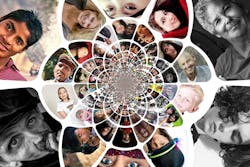In 2019, Blacks, Latinos and Native Americans were severely underrepresented in the healthcare workforce, a trend that shows limited signs of improvement, according to a study published by researchers at George Washington University as reported in a news release.
The findings are important because minority health professionals play a critical role in efforts to reduce the disproportionate burden of diseases, including COVID-19, among communities of color.
The researchers relied on publicly available data from the American Community Survey and the Integrated Post-Secondary Education Data Systems to estimate the current racial and ethnic profile of ten health professions. The analysis focused on the largest health diagnosing and treating professions, including doctors, nurses and pharmacists.
The team also developed a health workforce diversity index. The index compares the representation of minorities in each profession to their representation among the working age population.
Here are the key findings of the study:
In 2019, about 12.1% of the entire U.S. workforce was Black. In contrast, among the 10 health professions studied, Black representation ranged from 3.3% for physical therapists to 11.4% for respiratory therapists.
Among the 10 professions studied, the diversity index for Blacks in the workforce was .54. A diversity index of one represents parity: the diversity of the workforce is equal to the diversity in the profession. An index that is .54 means that Blacks are very underrepresented in the health professions.
In 2019, Latinos accounted for 18.2% of the U.S. workforce. At the same time, Latino representation in the health professions ranged from 3.4% for physical therapists to a high of 10.8% for respiratory therapists, resulting in an overall diversity index of .34. According to the diversity index, Latinos are also significantly underrepresented in the health professions.
Native Americans accounted for 0.6% of the overall U.S. workforce in 2019. Their representation among the 10 health professions studied ranged from the low of zero to just 0.9%, resulting in underrepresentation and a diversity index of .54.

